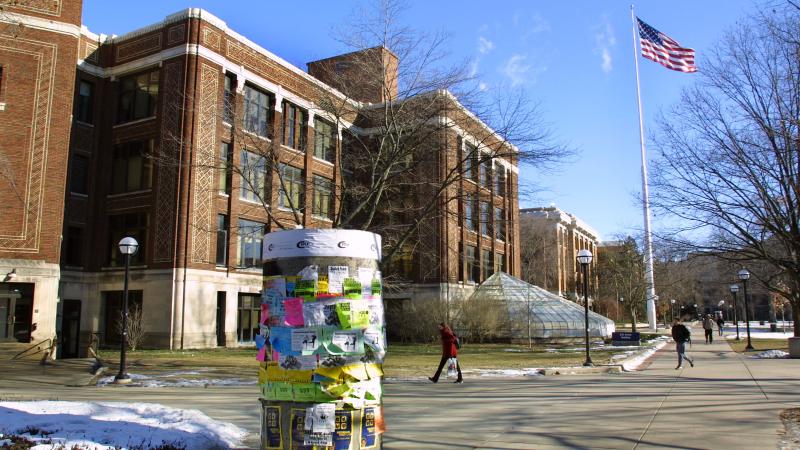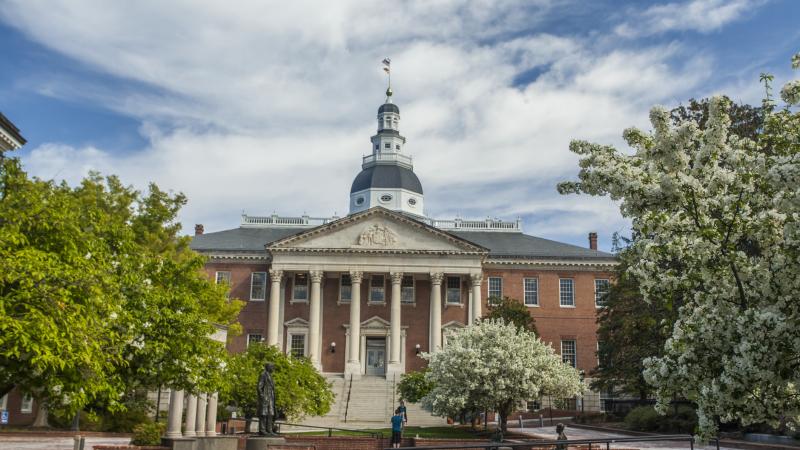Democrats duck debates with pro-Trump opponents scorned as weak general election candidates
Candidates in swing states including Arizona, Pennsylvania, and Michigan are shying away from debating opponents who had been dismissed as tainted by association with former president or lacking crossover appeal.
In races scattered across the country, Democratic candidates are shying away from debates with Trump-aligned opponents — party nominees who have been widely dismissed by media and political elites as weak general election candidates devoid of crossover appeal.
Reuters, for example, opined in late July: "Republican voters' embrace of fringe and divisive candidates is jeopardizing the party's goal of taking control of the U.S. Senate in November's midterm elections, as well as winning key governors' races."
In Arizona, however, Democratic gubernatorial candidate Katie Hobbs has made a final decision not to debate her pro-Trump Republican opponent, longtime TV journalist Kari Lake, whom national media outlets have routinely tried to marginalize as a conspiracy-minded "election denier."
A Trafalgar Group poll last week showed Lake with a 47-46% lead in the race, with 5% undecided.
In a letter to the Citizens Clean Elections Commission, Hobbs' campaign manager Nicole DeMont said her candidate refused to take part in something she said will make Arizona "the butt of late-night TV jokes and national ridicule." In the GOP primary debate, she wrote, "Kari Lake brought almost every single answer back to lies about an election that happened almost two years ago."
Hobbs, the incumbent secretary of state, was elected with heavy funding from left-wing megadonor George Soros and had authority over the administration of the disputed 2020 presidential election in the state, in which Joe Biden eked out a victory over Donald Trump by three-tenths of one percent, 49.39% to 49.09%. Suspicions about the election process in Democratic Maricopa County prompted the state's Republican Senate to order an audit.
The auditors flagged more than 50,000 ballots for further investigation for concerns ranging from people voting from addresses from which they had already moved to residents voting twice. At the same time, the audit reaffirmed the mathematical accuracy of the tally of counted ballots. The total number of questionable ballots was nearly five times the 10,400 vote margin that separated the two candidates. Widely panned by Democrats and their media allies, the audit gave Trump's troops fresh reason to call for more scrutiny.
After rebuffing invitations to debate, Hobbs had sought changes in the debate format. Lake agreed to debate in any format.
“I made it unbelievably easy for her," Lake responded after Hobbs' final refusal. "She picks the date, the time, the moderator. She even had the chance to write all of the questions. But she would rather hide from the voters and let Soros and other dark money groups pour millions of dollars in attack ads against me."
Arizona Democratic Sen. Mark Kelly hasn't yet agreed to debate his Republican opponent, Blake Masters, a Trump ally whom Kelly's campaign has derided as a "fringe" candidate.
In Pennsylvania's Senate race, meanwhile, Democratic Lt. Gov. John Fetterman has rejected GOP opponent Dr. Mehmet Oz's invitation to debate. Fetterman also avoided debates in the primary.
Oz was endorsed by former President Donald Trump on his way to a narrow win in a hard-fought GOP primary race.
Fetterman's campaign scorned the list of concessions the Oz campaign said it would grant Fetterman, who took a hiatus from the campaign trail after suffering a stroke two days before the state's May 17 primary.
"Doctor Oz promises not to intentionally hurt John's feeling at any point," the campaign said. "We will allow John to have all his notes in front of him along with an earpiece so he can have the answers given to him by his staff in real time. ... We will pay for any additional medical personnel he might need to have on standby."
Fetterman said the Oz campaign was "mocking a stroke survivor."
Pennsylvania Republican gubernatorial candidate Doug Mastriano was endorsed by former President Trump three days before his win in the primary.
"There is no one in Pennsylvania who has done more, or fought harder, for election integrity than state Senator Doug Mastriano," Trump said in his endorsement. "He has revealed the deceit, corruption, and outright theft of the 2020 presidential election, and will do something about it."
Mastriano has challenged his Democratic opponent, state Attorney General Josh Shapiro, to debate. Mastriano said he prefers the debates be run by campaigns rather than media outlets. Shapiro hasn't agreed to debate yet.
In her race for reelection as Michigan Attorney General, Democrat Dana Nessel has declined to debate Trump-backed Republican Matt DePerno. Her stated reason for avoiding a debate was the case her office has filed against DePerno regarding election tabulators.
"I am obligated to refrain from making extrajudicial comments that have a substantial likelihood of heightening public condemnation of the accused, or which may materially prejudice an adjudicative proceeding," she said in a statement, according to local media.
"And in abiding by my oath of office, I will — for all intents and purposes — be drawn into a boxing match with one hand tied behind my back, unable to speak about the matter and unable to repudiate any untruthful or misleading statements Mr. DePerno may assert," she added.
In Georgia, Republican Senate candidate Herschel Walker, who received a primary endorsement from former President Trump, and his Democratic opponent, Sen. Raphael Warnock, have also not agreed to a one-on-one debate yet. Instead, both candidates are holding separate events where they will answer questions.















